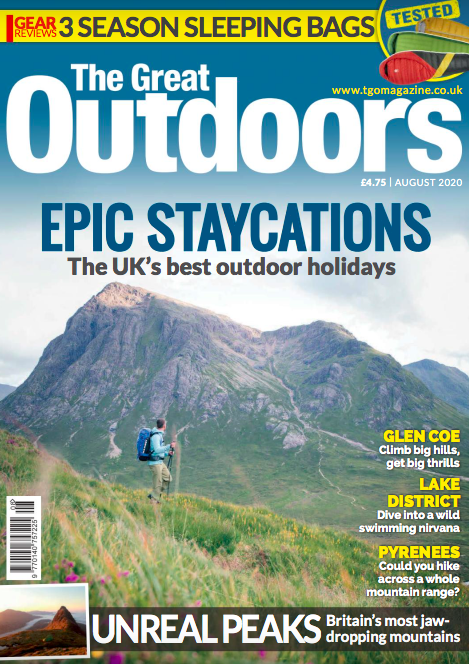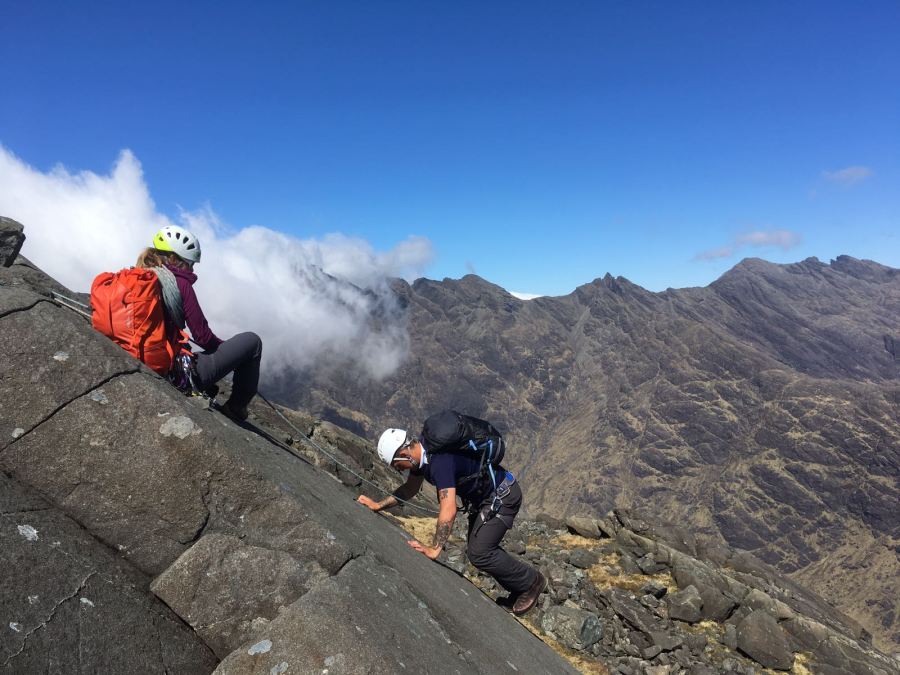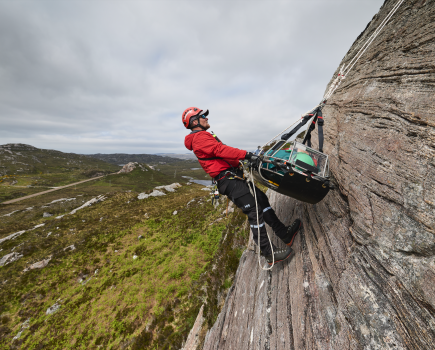Coronavirus restrictions have pushed outdoor centres across the UK to the brink of closure – and independent outdoor instructors are feeling the knock-on effects. Campaigners fear long-term implications for jobs, outdoor education and mountain safety.
Image credit: Becky Coles
A combination of the ban on overnight school trips, gaps in the government’s coronavirus support offering and continued Covid restrictions has created a toxic cocktail for outdoor instructors and the outdoor education sector more generally.
Earlier this week, the government was warned that 15,000 jobs could be at risk and outdoor education capacity permanently lost if the school travel sector closure continues. UK Outdoors, the industry body for outdoor learning and activities representing over 5,000 individuals and organisations, has appealed to Prime Minister Boris Johnson to resume overnight educational visits. Despite boarding schools, hotels and hostels all operating on similar guidelines, the school travel sector has been closed by Government since March.
“We have put our heart and soul into meeting every challenge the Government has set,” said Jim Whittaker, Chair of Association of Heads of Outdoors Centres (AHOEC) and UK Outdoors Member. “It is a bitter pill to swallow keeping our sites closed while we see hotels, boarding schools and hostels delivering the same overnight experiences unabated.
“The sector is ready and safe to reopen. We have seen nothing, no science, that contradicts that position. We hope the Government will listen, understand the lengths our sector has gone to in ensuring safety and compliance, and restart the sector.”
https://twitter.com/saveoutdoored/status/1313160906474483718
#SaveYourOutdoorCentres
UK Outdoors warns that a failure to act now could result in the outdoors education centre permanently losing half its capacity. It claims that inaction over guidance on travel and overnight visits for educational settings has already cost businesses, from small independent trip providers and local authority centres to larger organisations, an estimated £500m in lost revenue and over 6000 job losses. Since March, children and young people have missed out on over 1.5m educational visits.
In Scotland, the situation is similarly serious. Mountaineering Scotland has joined with other outdoor sports providers to support the #SaveYourOutdoorCentres campaign, appealing to the Scottish government to provide support to outdoor centres at risk of closure.
https://twitter.com/Mountain_Scot/status/1311635432162107393
Stuart Younie, CEO of Mountaineering Scotland, said: “This year as we have emerged from lockdown we have seen an increase in interest in outdoor recreation, a trend which is likely to continue. More than ever we need opportunities for future generations to learn to how to enjoy, appreciate and behave responsibly in the outdoors.
“Adventure tourism is also an important part of the Scottish economy, and these centres play a critical role in providing employment opportunities in some of the most rural parts of Scotland.”
“It’s like three winters in a row”
It isn’t just residential outdoors centres that are feeling the pinch. Outdoor guides – many of whom have ‘portfolio careers’ that depend both on freelance clients and short contracts (which can include a mixture of self-employed and PAYE work) – are also suffering.
“Some of us work for outdoor centres with young people, so that element of work has completely gone,” says Becky Coles, a Winter Mountaineering and Climbing Instructor (WMCI) based in North Wales. “Getting government support has been piecemeal. Those who are newly self-employed, freelancers paid via PAYE who could not be furloughed and those who would normally have summer contracts have had that part of their work excluded from the support packages offered. The worst situation was for the newly self-employed or those who had more than 50% of their income through PAYE and were not furloughed as they were not entitled to any support at all.”

Image credit: Becky Coles
In addition, many outdoor instructors had their entire diary of work cancelled for the year and have had to rebuild from scratch. The amount of work they were able to do post-lockdown has been limited by travel restrictions, a squeeze on accommodation, local lockdowns and new rules regarding the quarantining of equipment.
“On top of that, most outdoor instructors earn their money in the summer,” adds Becky. “We locked down before Easter when work had just started picking up and outdoor instructors are at their most financially vulnerable coming out of winter. With such a limiting summer and now going into another winter…it’s almost like three winters in a row.”
The fear expressed by Becky and many outdoor organisations is that qualified instructors and outdoor centre staff will leave the industry for other roles, leaving a permanent dearth in talent.
Will safety and wellbeing suffer?
One of the concerns raised by UK Outdoors is that children are missing out on potentially life-shaping outdoors learning experiences.
“Outdoor education is part of British culture with over 2m children a year taking part,” the organisation argues. “It is a vital resource for all schools to allow children to develop their social and teamworking skills in a friendly and safe environment. More so for the thousands of inner city schools, students and parents for whom outdoor education is a lifeline.”
Stuart Younie of Mountaineering Scotland agrees. “Young people across Scotland will be denied the opportunity to access residential outdoor experiences that have been identified by MSPs as being so important for Scottish children and young people,” he says.
With many outdoor instructors restricted by local lockdowns, a lack of residential accommodation and other issues, it has also become harder for people wishing to access the outdoors to do so safely.
“People are going to go out anyway, but we have been limited in how we can offer instruction to give them the skills to stay safe,” says Becky. “It’s really cool that there’s such an enthusiasm at the moment for outdoor activities – but those people who were going out early in the summer were really limited when it came to accessing guidance or skills training. In the Lakes, mountain rescue teams were reporting an increased number of calls. And people still aren’t able to access outdoor courses so easily.”
What’s the answer?
While UK Outdoors is calling on the government to offer “certainty and guidance in place for a phased reopening”, the #SaveYourOutdoorCentres campaign appears to be looking for a financial support package that will prevent the closure of outdoor centres. To date, more than 22,340 had signed the petition to demand Scottish Government support for struggling outdoor centres.
According to Becky, most outdoor instructors would far rather have the ability to work than be awarded financial support. However, she argues that the government needs to “look at how people have fallen through the cracks in their support, especially if local lockdowns restrict work in coming months, and it needs to also protect and encourage outdoor activities and training.”
 Subscribe to The Great Outdoors
Subscribe to The Great Outdoors
The Great Outdoors is the UK’s original hiking magazine. We have been inspiring people to explore wild places for more than 40 years.
Through compelling writing, beautifully illustrated stories and eye-catching content, we seek to convey the joy of adventure, the thrill of mountainous and wild environments, and the wonder of the natural world.
Want to read more from us?
- Get three issues of the magazine for £9.99, saving 30% with free UK home delivery.
- Take out a full subscription at just £15 for your first six issues.
- Order the latest issue and get it delivered straight to your door for no extra cost.
- Catch up on content you may have missed by buying individual back issues with free postage and packaging.







